Japan meets Italy at Milan’s new zen co-working café
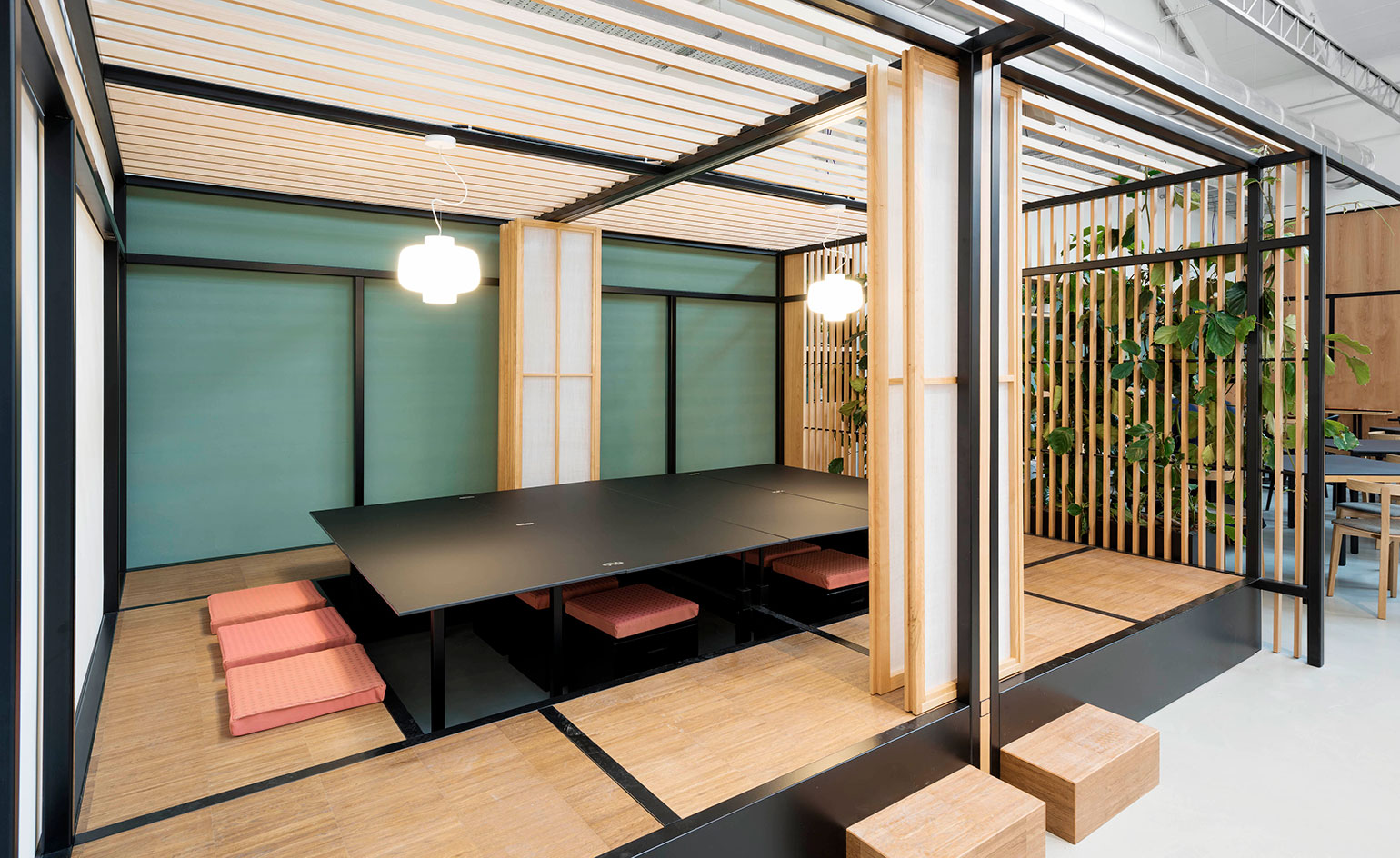
Receive our daily digest of inspiration, escapism and design stories from around the world direct to your inbox.
You are now subscribed
Your newsletter sign-up was successful
Want to add more newsletters?

Daily (Mon-Sun)
Daily Digest
Sign up for global news and reviews, a Wallpaper* take on architecture, design, art & culture, fashion & beauty, travel, tech, watches & jewellery and more.

Monthly, coming soon
The Rundown
A design-minded take on the world of style from Wallpaper* fashion features editor Jack Moss, from global runway shows to insider news and emerging trends.

Monthly, coming soon
The Design File
A closer look at the people and places shaping design, from inspiring interiors to exceptional products, in an expert edit by Wallpaper* global design director Hugo Macdonald.
Mixed-use café and co-working spaces may be old hat in places like London, Amsterdam or New York, but in buttoned-up Milan, they’re something of a rarer breed. Milanese cafes comprise mainly the typical Italian stand-up-and-sip variety and casual office space is few and far between, relegated to the up-and-coming but far-flung neighborhoods of Loreto or Lodi.
Just in time for the droves of designers and design devotees to descend on Salone del Mobile, enter Tenoha. The second location of Tokyo-based concept shop, café, event and co-working space is housed within a 2500 sq m 1930s-era ex-wallpaper factory in the canal-side Navigli neighborhood.
The simple but well-finished interiors — cherry wood banquette seating, Horigotatsu-style booths and a custom gridded lighting system — were designed by Milan-based Park Associati. Not keen on recreating verbatim the original Daikanyama location, Park Associati envisioned a space that channeled contemporary Tokyo of the Italian imagination. It was a novel idea that easily won over owner Hiroshi Sato for Tenoha’s first location abroad, allowing them some freedom to experiment with the design.
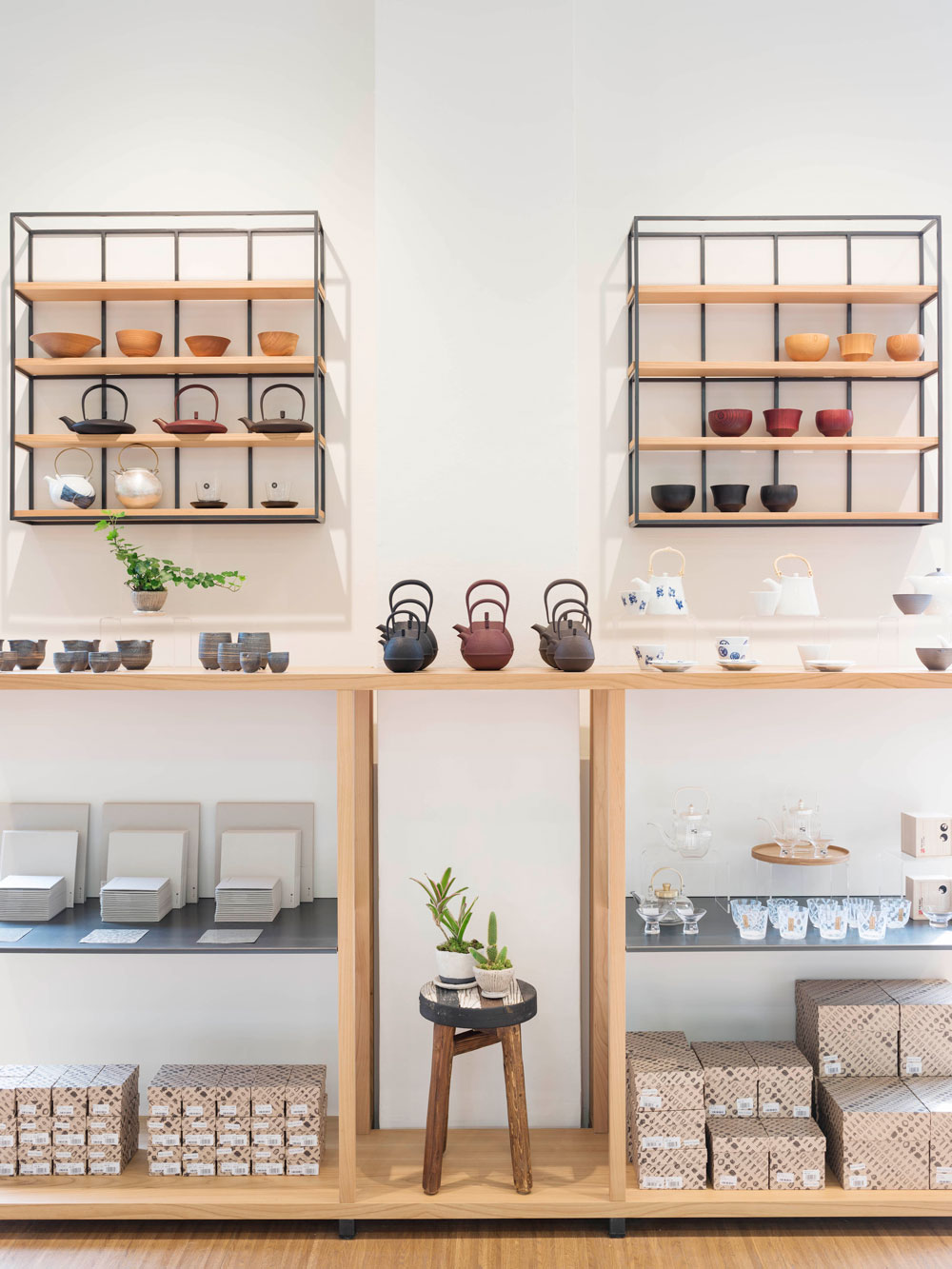
The shop stocks gifts and homeware imported from Japan
‘We wanted to create a space where Milan and Tokyo met halfway,’ explains Park Associati’s Michele Rossi. The visuals may reference the hip Daikanyama hangout, but materials are firmly rooted in Italian design. Shōji screens are lined with textiles by Milan-based Kvadrat and hexagonal kelp-green tiles by Botteganove clad the bar, echoing the deep teal and orange palette throughout.
A classic Milanese courtyard sits at the centre of the sprawling space: a good weather godsend with ample outdoor seating bordered by potted bamboo and cherry blossoms. On the Via Vigevano side, the shop stocks art gifts and homeware imported from Japan: find Toyo-Sasaki glassware, tokyobike cruisers and Kobeha Keikaku stationary. Its well-trafficked location benefits from tall windows that flood the space with both daylight and curious passersby.
In the café, a menu devised by Hideyuki Manaka of Tokyo’s Da Fiore offers unfussy dishes of Tonkatsu pork cutlets and udon noodles alongside more inventive plates like Caprese salad with tofu and yuzu Monkfish. Wine, of course, is Italian, but the cocktail list skews Japanese.
Behind a glass wall separating the restaurant from the co-working areas, a tiered wooden platform scattered with cushions caters to the flexible working habits of Tenoha’s freelancing demographic: a group who will surely come out in droves to welcome the latest addition to Milan’s growing wave of exciting new spots.
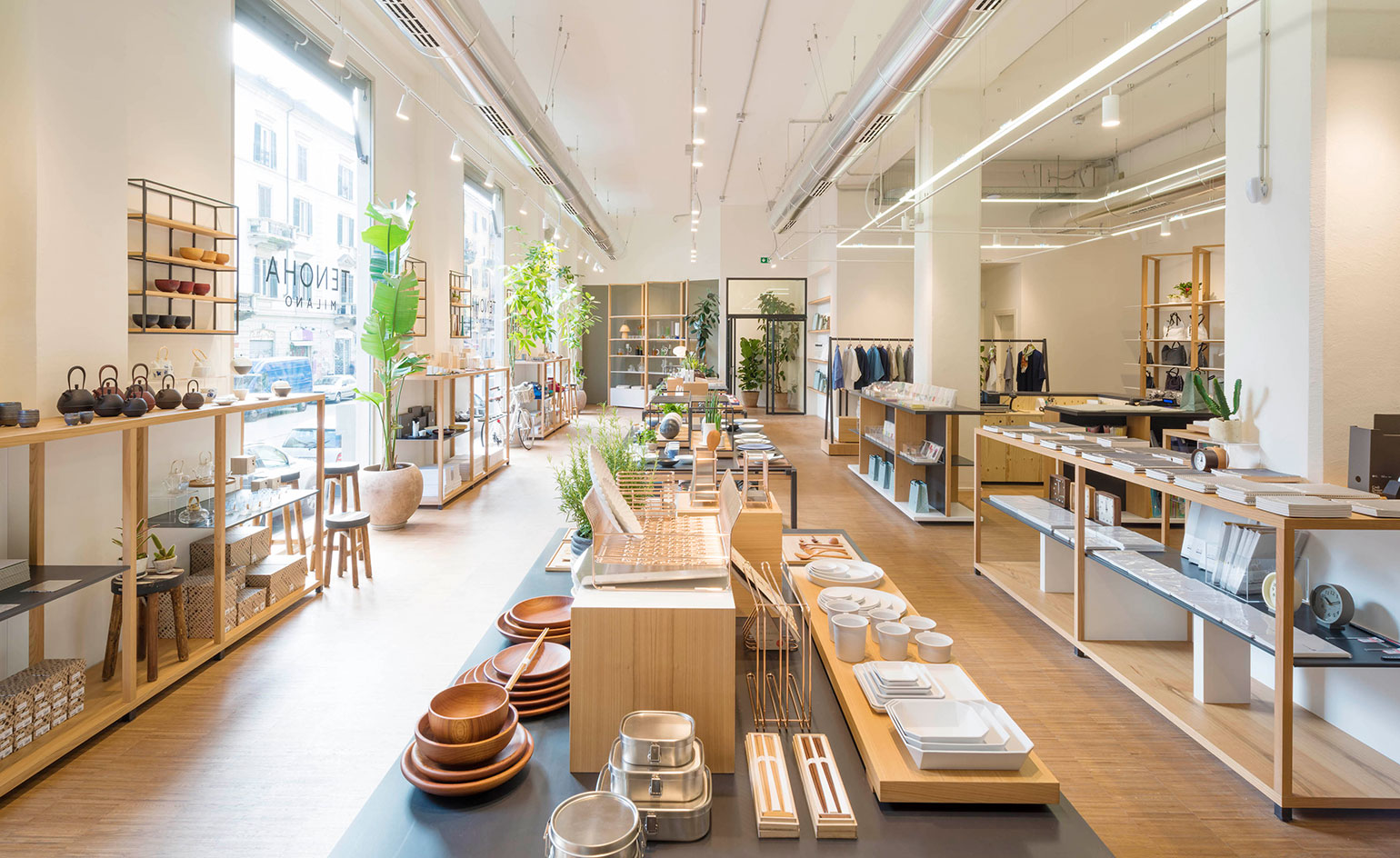
The second location of Tokyo-based concept shop, cafe, event and co-working space is housed within a 2500 sq m 1930s-era ex-wallpaper factory in the canal-side Navigli neighborhood
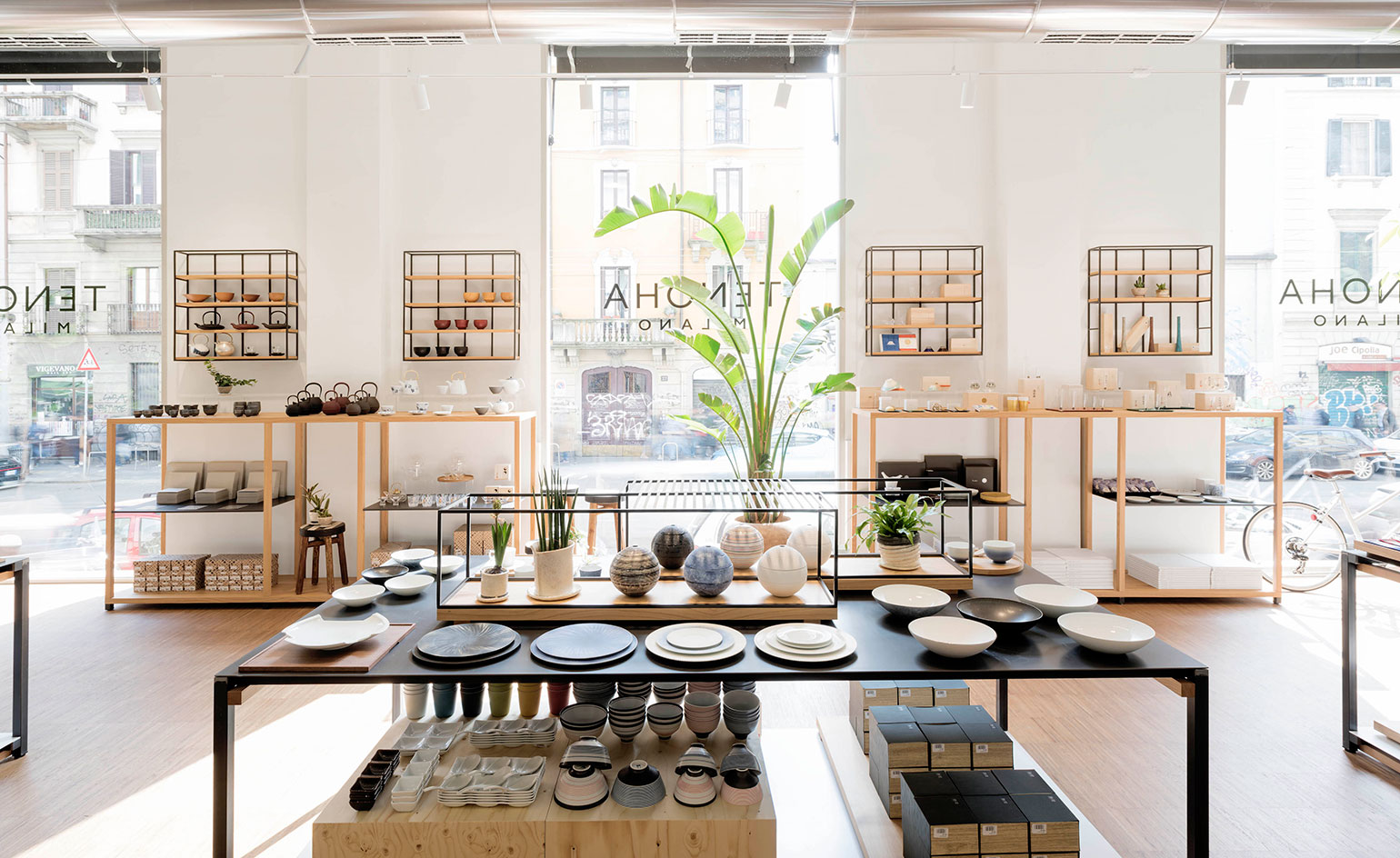
Interiors comprise cherry wood banquette seating, Horigotatsu-style booths and a custom gridded lighting system
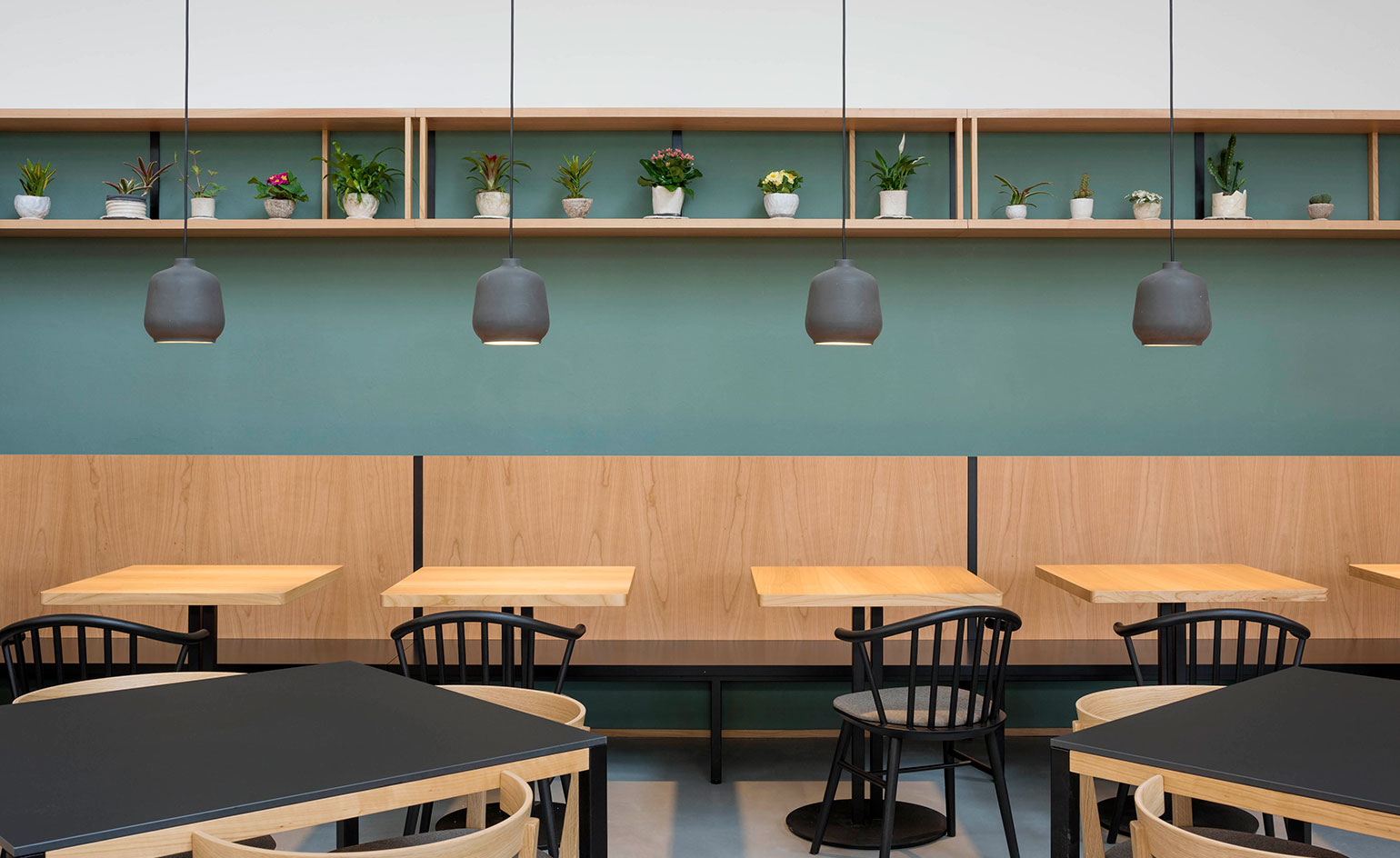
Shōji screens are lined with textiles by Milan-based Kvadrat
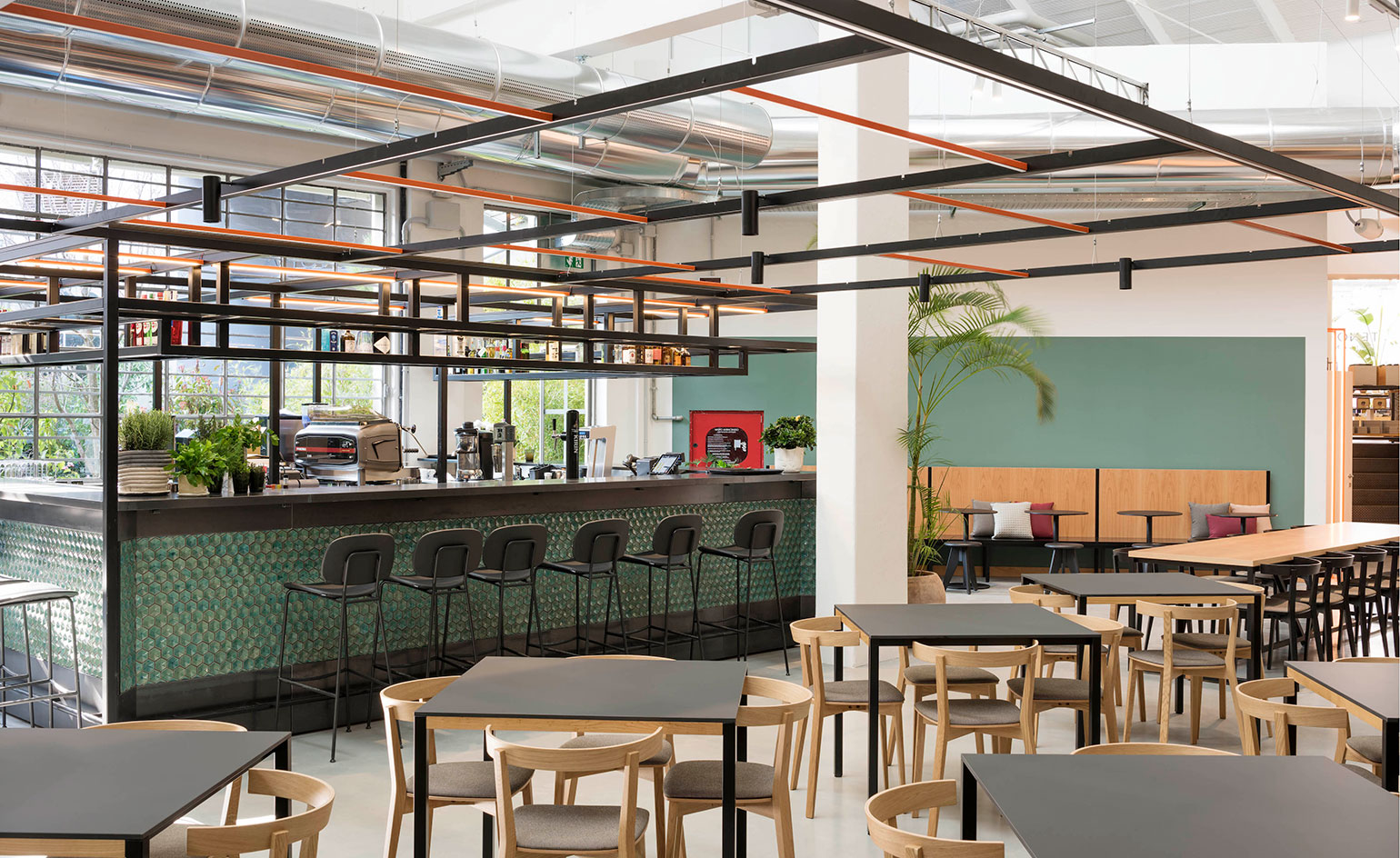
Hexagonal kelp-green tiles by Botteganove clad the bar
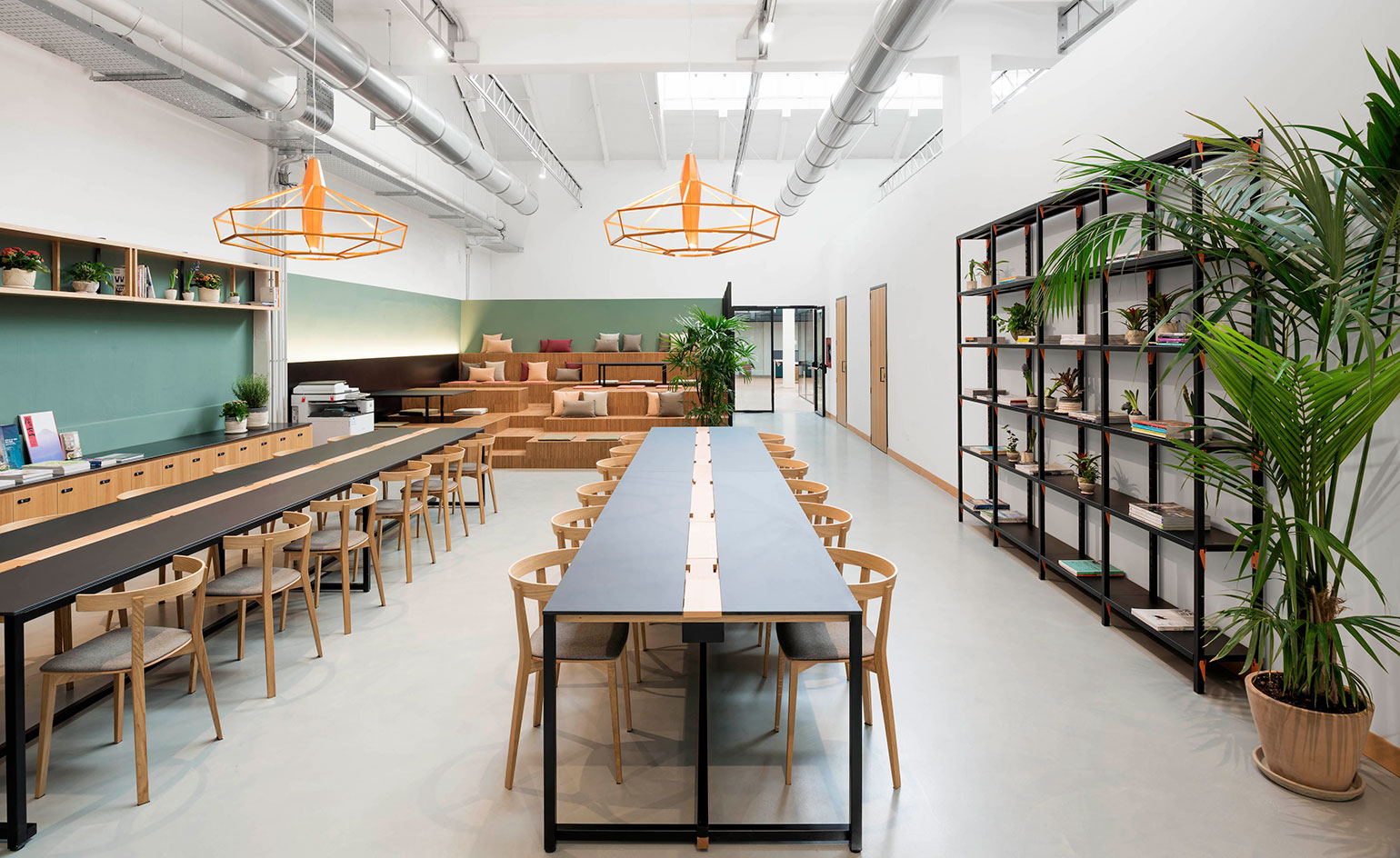
A glass wall separates the co-working area
INFORMATION
For more information, visit the Tenoha website
ADDRESS
Via Vigevano 18
20144, Milan
Receive our daily digest of inspiration, escapism and design stories from around the world direct to your inbox.
Laura May Todd, Wallpaper's Milan Editor, based in the city, is a Canadian-born journalist covering design, architecture and style. She regularly contributes to a range of international publications, including T: The New York Times Style Magazine, Architectural Digest, Elle Decor, Azure and Sight Unseen, and is about to publish a book on Italian interiors.